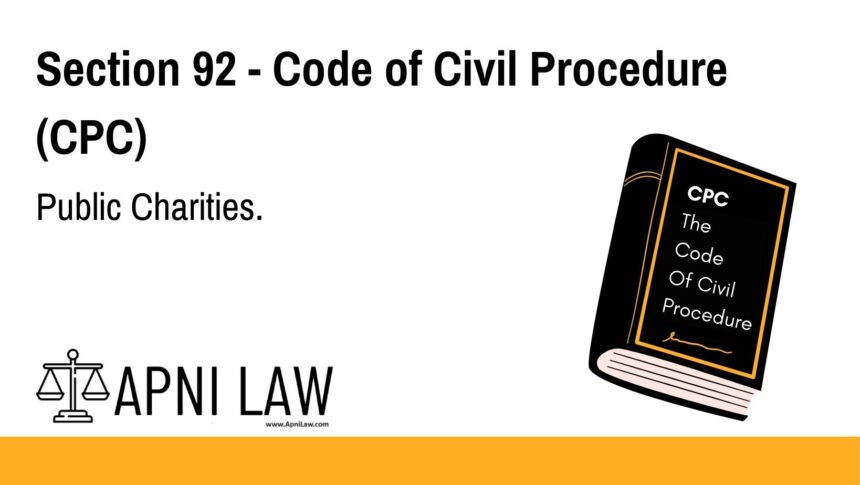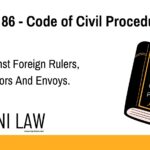Code
CPC 1(1) In the case of any alleged breach of any express or constructive trust
created for public purposes of a charitable or religious nature, or where the direction of the Court is
deemed necessary for the administration of any such trust, the Advocate-General, or two or more persons
having an interest in the trust and having obtained the2[leave of the Court], may institute a suit, whether
contentious or not, in the principal Civil Court of original jurisdiction or in any other Court empowered in
that behalf by the State Government within the local limits of whose jurisdiction the whole or any part of
the subject-matter of the trust is situate to obtain a decree:(a) removing any trustee;(b) appointing a new trustee;(c) vesting any property in a trustee;3[(cc) directing a trustee who has been removed or a person who has ceased to be a trustee, to
deliver possession of any trust property in his possession to the person entitled to the possession of
such property];d) directing accounts and inquiries;(e) declaring what proportion of the trust property or of the interest therein shall be allocated to
any particular object of the trust;(f) authorizing the whole or any part of the trust property to be let, sold, mortgaged or exchanged;(g) settling a scheme; or(h) granting such further or other relief as the nature of the case may require.(2) Save as provided by the Religious Endowments Act, 1863 (XX of 1863),4[or by any
corresponding law in force in5[the territories which, immediately before the 1st November, 1956, were
comprised in Part B States]], no suit claiming any of the reliefs specified in sub-section (1) shall be
instituted in respect of any such trust as is therein referred to except in conformity with the provisions of
that sub-section.6[(3) The Court may alter the original purposes of an express or constructive trust created for public
purposes of a charitable or religious nature and allow the property or income of such trust or any portion
thereof to be applied cy pres in one or more of the following circumstances, namely :(a) where the original purposes of the trust, in whole or in part,(i) have been, as far as may be, fulfilled; or(ii) cannot be carried out at all, or cannot be carried out according to the directions given in
the instrument creating the trust or, where there is no such instrument, according to the spirit of
the trust; or(b) where the original purposes of the trust provide a use for a part only of the property available by
virtue of the trust; or(c) where the property available by virtue of the trust and other property applicable for similar
purposes can be more effectively used in conjunction with, and to that end can suitably be made
applicable to any other purpose, regard being had to the spirit of the trust and its applicability to common
purposes; or(d) where the original purposes, in whole or in part, were laid down by reference to an area which
then was, but has since ceased to be, a unit for such purposes; or(e) where the original purposes, in whole or in part, have, since they were laid down,(i) been adequately provided for by other means, or(ii) ceased, as being useless or harmful to the community, of(iii) ceased to be, in law, charitable, or(iv) ceased in any other way to provide a suitable and effective method of using the property
available by virtue of the trust, regard being had to the spirit of the trust.]








